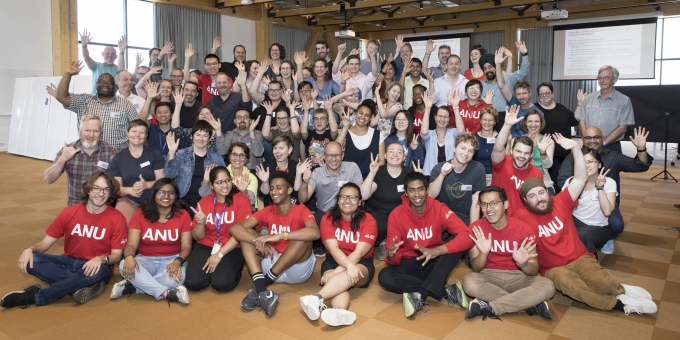The first few months of 2020 have been unsettling. New uncertainties seem to arrive on a daily basis. Smoke from nearby bushfires, a freak hailstorm, and increased fire danger made life in Canberra unusual and dangerous.
This month has seen a realisation of the seriousness of COVID-19, which has now been declared a Global Pandemic by the World Health Organization. This virus has led to cancelled flights, quarantines, banned travel, and the suspension of large gatherings.
A large number of universities and colleges have suspended face-to-face classes for the rest of the term. At The Australian National University College of Engineering and Computer Science, we have been offering remote options for 94% of our courses this semester.
Yet, many things have not changed. Our College’s mission and vision to reimagine engineering and computer science – to keep humanity in technology while creating the new world of technology – has not changed.
The need for a savvy, educated workforce that resembles the people and society they serve is more important than ever. One that is skilled in addressing society’s needs through solving technological problems that ensure the solutions include humanity. Artificial intelligence, cyber security, alternative energies, advanced materials, computer systems that enable education and communications of ideas in new ways, responses to climate change, treatments for disease and enabling technologies for those who need them. These are all a part of what we do.
In a time of social distancing, we’re forced to ask, “How do we build community and relationships in this strange new world?”
Here are ten ideas for relationship and community building that can take us through the next 6-12 months of COVID-19.
1. Focus on building relationships and community. These relationships will generate far more resources in the mid-to-long term than any short-term transactional approach can.
2. Stay in touch. Communicate both broadly and personally. My friend, Jennifer Harris, calls these personal communications “love letters”. Let’s send love letters to our partners and supporters.
3. Be strategic and purposeful. Focus on what is most important. The more we can focus, the more impact we will have. Make the hard decisions about what we will and will not be doing… and stick to them.
4. Get together online. Brainstorm about problem solving, host workshops, webinars and talks by experts who are addressing the critical issues and challenges of our day. Share the recordings with your community.
5. Get good at Zoom. We will all be participating in lots of video meetings in the coming months. Learn to use its functionality and how to be effective communicators in this format.
6. Be responsive. Answer and send texts, emails, messages, calls, blog comments, etc.
7. Set the tone. Lead by example. We are working to attract others to give their time and resources. We will be more credible and more effective if we model the behaviour we are asking of others.
8. Be open and authentic. Share not only successes and inspiration, but also challenges and disappointments. Be positive and affirming. Ask for advice. Our constituents can help us address the challenges we face. Not only can they help to solve problems, this is an excellent way to keep them engaged. Nature may abhor a vacuum but the rumour mill loves it. Frequently communicate the facts in your own voice.
9. Send “virtual hugs”. Tell people how much you appreciate and love them. We can say it in words, and in our actions (responsiveness).
10. Invite others to join us. As we get to know our constituents, it’s natural to invite them to join our communities. Don’t assume they will ask to join, invite them. An authentic, sincere, humble, “We need you. Please join us in changing the world,” is a compelling invitation and a great way to get more partners in our cause.
Remember: “Fear is the non-acceptance of uncertainty. If we accept that uncertainty, it becomes adventure” – Rumi.
Eric Billman is Head of Advancement at the ANU College of Engineering and Computer Science. He writes more on philanthropy and strategic planning at Donor Bliss.

